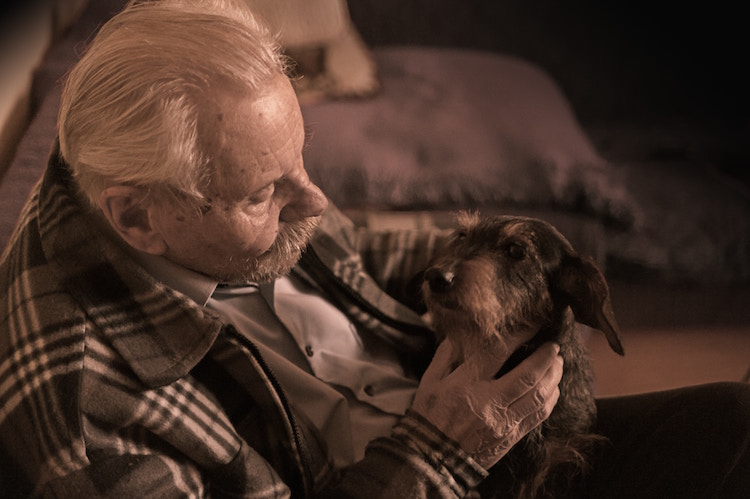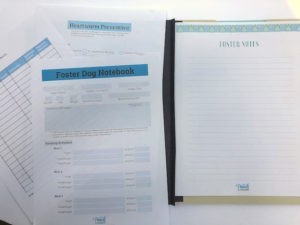I’ve been spending a lot of time with my parents these days. So far, I’ve spent probably half of 2019 in south Alabama helping my family help my parents who are currently aging in place. Our independence is not static, you know? As a support person, I’m sometimes overwhelmed at all of the details I need to pay attention to in order to keep pace with my parent’s ever-changing needs. As an animal rescuer, it also gives me pause to think about how we help an aging person adopt a pet. My brain flooded with questions!
Teeth Gritting, My Mom Has a Death-Grip on Her Independence
Don’t tell her she can’t do or can’t have, you know?
My mom will be 83 in February. She’s stoic and determined. I was well into my 30’s before I learned she (without medication) dealt with chronic pain in her now deformed feet and had been since she was a teenager. These days, she often “forgets” to walk with assistive devices when meandering in her home. She’s had three falls this year, the most recent fall resulting in a fractured arm and black eye. All because she was active outside her capabilities and without her assistive device. She does not want to slow down. I don’t blame her!
Mom is a southern lady, through and through. Gracious, sweet, and engaging. Daily she dances the dance of keeping up appearances and avoiding absolute mortification if anyone learned her struggles. She rarely complains. Fiercely independent. Just last week, we invited a home professional over to help us make some decisions on home repairs. Mom nearly hurt herself cleaning house for two days before the appointment. I thought the house was quite presentable, but I didn’t see what she saw. She’s never hired a housekeeper. For more than 40 years, she’s kept a 4400 square-foot home all by herself. Now, as her muscles begin to fail her, her children now insist she accept help.
These Days, Dad Prefers to Choose When and Where He Will Bathe.
My dad turned 87 over the summer. He has progressive, vascular dementia, chronic obstructive pulmonary disease, and stage 4 renal failure. He’s also independent and quite the story-teller, although each story gets stuck in his mind for a few days as we patiently listen as if it’s the first time we’ve ever heard him tell the tale.
He’s a former collector of I’ll-get-to-that projects. Rusty cars with duplicates for parts, broken antique farm equipment once valuable, and things he found alongside the road that to him, still had use for something. “That [thing] is handy to have around.” he’ll say. Now unable to drive a car, he instead collects empty milk jugs, Ensure bottles with lids, and forever more, paper.
We recently dumped bank statements and tax documents from 1969 into the burn barrel and struck the 100th match.
Dad is obstinate if not independent. Getting him into clean clothes, with clean skin and hair is a test of everything I possess.
For safety, my 22-year-old twin nephews live in the home with mom and dad.
Looking Beyond The Surface
I’ve appreciated my parent’s independence and determination until the last few weeks as our attention to my parent’s needs has moved from secretly clearing property and removing paper records to addressing the house needs and personal care needs. Working alongside mom, I’ve realized I and my sisters have assumed that mom had a handle on things. She still cooks, cleans, pays bills, grocery shops, and even does a little yard work. She is awful at asking for help unless the item is too heavy for her to lift, then she calls upon the boys to assist her.
We’ve also assumed that she could take dad to his doctor appointments and accurately report back. We assumed she was keeping tabs on dad’s medications. After accompanying her and dad to an appointment this week, I observed she cannot. She is losing some of her executive functioning.
To add to the problem, no one is in the habit of taking initiative without mom’s direction. She’s always been the matriarch of the household.
When talking with my mom about accepting help, I can feel her tension. It’s not about being unrealistic. Instead, it’s more about her personal struggle with aging and her anger at her body for failing her. I remind her that our goal is not to take away her independence, but to maximize her independence by selectively re-assigning tasks to others so she’s free and more able. Less tired. Less uncomfortable.
Charlie, The Family’s Yorkie-Poo
One of my immediate tasks is Charlie, the family’s yorkie-poo. Originally rescued by my sister for my youngest nephew who wanted a dog, Charlie instead chose my niece as his “person.” When she relocated for a job opportunity out west, Charlie adopted my mom.
Dad loves Charlie, and needs the companionship of a pet. I took dad’s outside bird dogs away last year. That was extremely hard to do. Sadly, his spayed, semi-feral cat came up missing a few months ago. Both of those events were sad for Dad and he stopped eating for several days afterwards. So, Charlie stays as long as it is 100% safe for Charlie to stay.
Mom was forgetting to give heartworm preventive on time, and Charlie, now 14 years old, hadn’t had a full workup since he was rescued, I think. Charlie has a sensitive tummy, is a finicky eater, and has a severe flea allergy and probable environmental allergy to grasses. He’s itchy. His mouth was gross.
We dropped over $600 getting Charlie everything he needs for a whole year along with a much-needed dental cleaning and tooth extraction. Thankfully, he still tests heartworm negative. His grooming appointments and the occasional Cytopoint injection when he begins to feel itchy again is all that now needs coordinating. I’ve never been more grateful for the ProHeart 12-month heartworm preventive injection and the 12-month Bordatella! Anytime I can take away an extra task or thing to remember, my parents benefit. Taking care of Charlie makes mom more independent, not less.
In order to help my aging parents keep their pet, I will re-assign “Charlie responsibility” to someone in the family, whether they like it or not, and hopefully I’ll get full cooperation. No longer should mom worry about coordinating grooming appointments or forgetting to buy Charlie food until the last day. (Mom does not do any type of online shopping.) I will continue to manage his vetting and make sure he gets his annual heartworm test and preventive shot and annual check-up. Charlie is good about letting folks know he’s hungry or his bladder is full.
How Can We Help An Aging Person Adopt A Pet?
I thought about my rescue work and the way we vet adoption applications from elderly persons. Besides the emphatic “no” when a person in their 80’s wants an 8 week-old puppy, I thought about how I’d vet a person of a certain age bracket when they are seeking a canine companion. A person in their 70’s or 80’s wouldn’t get an automatic “no” from me. But, what are the right questions to ask? Do we ask enough questions? Are we thorough in our efforts to help the aged person adopt a pet?
When I’m considering placing my foster dog in an elderly person’s home, I’ve always asked, “who is your support when/if you should need it?”
Obviously, that’s a question that should be asked when an adoption applicant is up in years. But is it enough of a question to get you the answers you need to make a best placement for your dog?
The hard truth is that independence and capability more often slip away at a snail’s pace. Certainly, a catastrophic event can flip the switch from independence to dependence in a split second, and we as caregivers of elderly people have to have a plan in place for that possibility. But, we have an opportunity to recognize gradual change and flex a care plan to maximize true independence as long as possible. We certainly owe that to pets in the home.
How do we assure that we are making appropriate placements in the home of aged pet lovers? Is it enough to know there is a “support system” or do we need to ask more questions? Get more information?
Questions to ask when considering placing a dog in the home of an aged person.
- Speak to the primary support person and ask them the following questions:
- How often do you visit? Will you check on the dog daily/weekly/monthly?
- Who else visits? How often? Will they have any responsibilities for the pet?
- Which person will keep up with routine care? Grooming? Giving heartworm preventive? Bathing? Nail trims?
- Who purchases food, flea/tick preventives, dog care supplies?
- Who will take the dog to the veterinarian?
- In the event of a need for alternate placement for the dog, what are your plans?
- Who provides the dog with food, water, and opportunities to empty bladder/bowel?
- Who will check in with the elderly person to assess their anxiety or patience with the pet?
Sometimes I can see my mother being bothered by Charlie’s desire for near constant closeness and affection. Should that continue or progress, we may make a decision to move Charlie.
Whereas my parents do not have complete capability to care for a pet, they do benefit from having Charlie in their home and in their lives. I’m thankful there are so many family members in the home daily to help out. I’m motivated to remain keen in my awareness of any more emerging deficits in his care and/or my parents incapabilities and adjusting the care plan accordingly.
The minute Charlie is not receiving 100% of what he needs, Charlie will return to my sister. How about you? What are your views on pet ownership, pet care, and the aged? Would you place a pet in the home of aged person? Under what conditions? What questions would you ask or not ask? Let me know your thoughts!
Update 8/2021:
Several months ago, we moved Charlie back to my sister’s house. Mother had grown more anxious over him being underfoot, wanting her attention, and her not consistently keeping his grooming needs in check. Charlie visits often, my parents both get the joy of spending time with him.
Extra Reading
Helping Senior Parents Care for Their Pets
Popular Posts
- HOW TO CHOOSE A DOG RESCUE AGENCY
- ULTIMATE GUIDE TO FOSTERING: 10 SKILLS YOU NEED
- VOLUNTEER IF YOU CANNOT FOSTER




